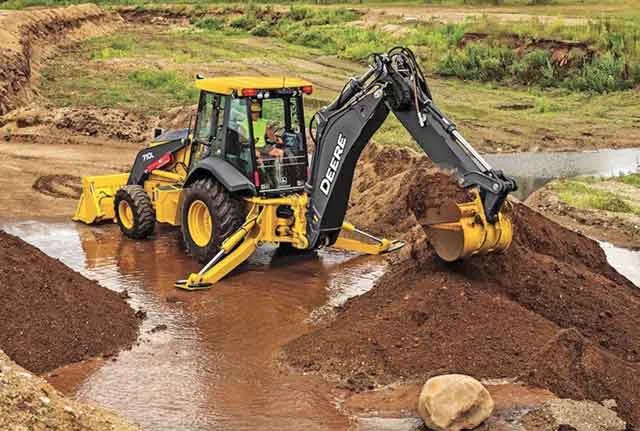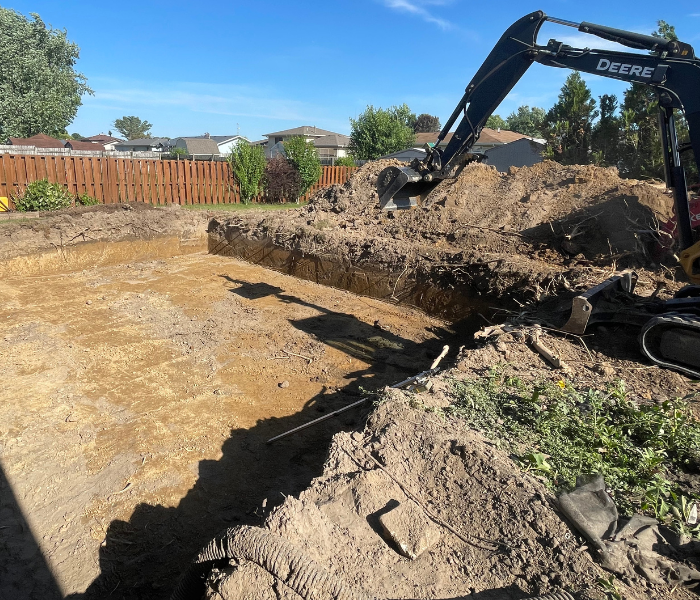Lancaster Excavation - Expert Excavation Services in Lancaster, OH
Lancaster Excavation - Expert Excavation Services in Lancaster, OH
Blog Article
Comprehensive Excavation Methods: Grasping the Basics for Success
The careful preparation, exact implementation, and precise attention to detail called for in excavation projects demand an extensive technique that incorporates numerous basic elements. The true mastery exists not just in comprehending these basics yet in effortlessly integrating them to navigate the intricacies of excavation jobs with finesse.
Recognizing Excavation Job Planning

Effective excavation projects are developed on the foundation of complete and precise preparation. The initial phase of any kind of excavation project is the drawing board, where crucial choices are made that can considerably influence the outcome of the job. During this phase, it is vital to gather all relevant details concerning the site, including topographical studies, dirt make-up, and any prospective dangers that may exist. Recognizing the project timeline, spending plan, and extent constraints is important for developing a comprehensive excavation strategy that makes sure the project's success.
One secret aspect of excavation job planning is the development of an in-depth timeline that outlines the series of due dates, milestones, and tasks. By meticulously taking into consideration all these factors throughout the planning phase, excavation tasks can be performed effectively and effectively, leading to effective end results - dump truck companies in ohio.
Dirt Analysis and Website Assessment
Carrying out detailed soil analysis and website assessment is a crucial action in the preparation phase of any kind of excavation job. Dirt analysis includes establishing the make-up, structure, and residential properties of the dirt at the excavation website. This details is essential for comprehending the soil's bearing capacity, moisture content, and capacity for disintegration, which are key factors in determining the excavation methods and devices required for the task.
Website analysis exceeds soil evaluation and incorporates a more comprehensive analysis of the total site problems. This analysis includes determining any prospective hazards, such as below ground energies, ecological worries, or unsteady terrain, that can influence the excavation process. By completely examining the site, project supervisors can develop efficient excavation techniques that prioritize safety, effectiveness, and environmental management.
Utilizing advanced innovations like ground-penetrating radar, dirt sampling, and drone studies can boost the precision and performance of dirt evaluation and site evaluation. Spending time and sources in these preliminary actions can inevitably save time and stop pricey hold-ups or problems throughout the excavation procedure.
Devices Selection and Use
Efficient excavation jobs count greatly on tactical devices choice and application to make certain ideal performance and efficiency. Choosing the right tools for the job is crucial in maximizing effectiveness and minimizing downtime. Aspects such as the type of dirt, depth of excavation, and job extent play a considerable role in establishing the most ideal equipment for the job available.

Along with selecting the suitable devices, correct use is essential to project success. Operators find more information must be trained to manage the tools safely and effectively - septic ohio. Normal upkeep checks and timely repair services assist avoid breakdowns and guarantee regular efficiency throughout the job
Precaution and Regulations Compliance
In the world of excavation tasks, focusing on precaution and compliance with regulations is extremely important to making certain a legally sound and protected operational setting. Security steps incorporate a variety of techniques, consisting of carrying out thorough site analyses, carrying out appropriate signage and barriers, and offering sufficient safety and security training for all workers involved in the excavation procedure. Adherence to policies, such as OSHA demands in the USA, makes sure that the excavation project meets the needed standards to secure workers, onlookers, and the surrounding atmosphere.

Monitoring Development and Adjusting Techniques
How can predict managers properly track the improvement of excavation projects and adjust their strategies accordingly to optimize results? Tracking progress is crucial for making certain that excavation jobs remain on track and fulfill due dates. Job supervisors can use various tools and methods to track progress, such as everyday progress records, regular site inspections, and my review here progressed monitoring technologies like drones and GPS tracking systems. By continuously keeping track of the task's advancement, supervisors can recognize any kind of possible delays or problems early on and take positive procedures to address them.

Conclusion
To conclude, understanding the principles of thorough excavation strategies is vital for the success of any job. By comprehending task preparation, evaluating dirt and site problems, selecting ideal tools, abiding by safety and security policies, and keeping track of development, task managers can make sure a efficient and smooth excavation process. Carrying out these methods will certainly cause effective end results and lessen prospective threats or problems throughout the excavation job.
The preliminary phase of any excavation project is the planning phase, where crucial decisions are made that can significantly impact the outcome of the project. Understanding the project spending plan, scope, and get more timeline restraints is critical for creating an extensive excavation strategy that ensures the task's success.
How can project supervisors effectively track the advancement of excavation jobs and adapt their approaches appropriately to optimize end results? By very closely keeping an eye on development and being eager to adjust strategies, task supervisors can enhance the overall success of excavation tasks.
By recognizing job planning, assessing dirt and site problems, selecting suitable devices, conforming with safety laws, and checking progression, project supervisors can ensure a efficient and smooth excavation procedure.
Report this page